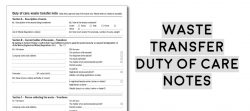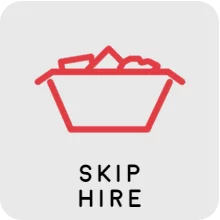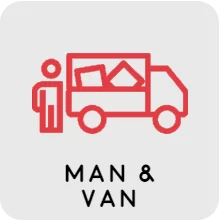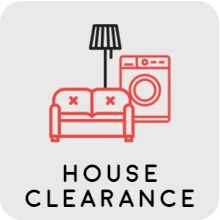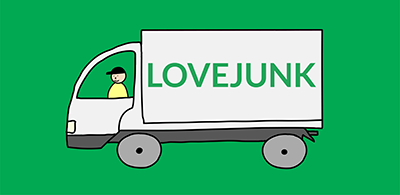5 Questions To Ask Your Bulky Waste Contractor
Given the increasing scrutiny being placed on an organisation’s sustainability, effective waste management is an area that has the potential to have a hugely positive impact – not just from an environmental perspective but financially, too. However, when it comes to choosing the right partner for your commercial bulky waste, it can be difficult to know where to start.
Here are 5 questions I recommend every organisation should ask:
1. Are you registered with the Environment Agency?
2. What insurance policies do you have in place?
3. Do you provide waste transfer notes?
4. Can you provide evidence of final disposal?
5. Do you have separate arrangements for collecting hazardous waste?
1. Are you registered with the Environment Agency?
It’s a basic point but one that is often, rather worryingly, overlooked: only organisations that are registered as waste carriers with the Environment Agency should be used to remove waste. Carriers that aren’t registered are operating illegally and organisations disposing of waste risk criminal prosecution and civil liability if they employ their services. At the outset, waste partners should be asked to show proof of registration. If they are unable to provide this, then look elsewhere.
2. What insurance policies do you have in place?
It’s important to check that carriers have the appropriate insurances in place to cover them for transporting waste, such as vehicle and public liability insurance. Having insurance for general removals isn’t enough – it specifically needs to cover waste to be within the law. Again, ask to see documentary evidence.
3. Do you provide waste transfer notes?
Every time control of waste is transferred from one party to another, it must be accompanied by a Waste Transfer Note (WTN) which is sometimes referred to as a ‘duty of care’ note. This is a legally required document that represents the transfer of ownership and responsibility of the waste from the disposing organisation to the waste carrier. If waste is not disposed of in accordance with the law and the disposing organisation has no WTN to prove it handed responsibility for the waste to a contractor, it leaves the organisation open to prosecution.
Professional waste carriers will produce WTNs for their clients, but both parties are responsible for ensuring the information contained is accurate, and each must sign and keep a copy for at least two years. When meeting potential waste partners, simply ask to see recent examples of WTNs collated for their other clients. Some waste carriers may offer to supply tipping receipts from the ultimate disposal site, but these should not be accepted as a substitute for a WTN. A properly completed WTN should not only list the waste carrier’s registration number but also contain information such as a description of the waste (including relevant European waste code(s)), its quantity and/or volume, the collection address, and the date the collection was made.
Over time, this information can be collated and regularly reviewed (along with related invoices) to identify the various waste streams coming out of the organisation and the costs associated with disposal. Armed with this information, it is then possible to not only check whether the carrier’s rates are competitive, but also to look at reducing costs through processes such as reuse initiatives, on-site segregation, breaking waste down to make it less bulky, and recycling.
4. Can you provide evidence of final disposal?
It takes little effort for a waste carrier to provide a tipping receipt and other evidence of final disposal. This, of course, should reconcile to the WTN given for the initial waste collection. Although it could take time to get this information, and the tipping receipt might also relate to a load that includes waste from another client of the waste collector, reconciliation should still be possible.
Therefore, it’s crucial to check that any potential waste partners are happy and able to provide this information – ask for examples of evidence supplied to other clients. It will offer peace of mind about the waste audit trail and allow a much better understanding of how much waste is avoiding landfill.
5. Do you have separate arrangements for collecting hazardous waste?
Hazardous waste, such as fridges, TVs, computer monitors and fluorescent lamp tubes, should not be bundled in with general waste, and should only be disposed of at facilities that are licensed to handle such waste. When asking potential waste partners about their procedures for collecting hazardous waste, there are three important things to look out for.
Firstly, in addition to standard WTNs, waste carriers should be supplying hazardous waste consignment notes to their clients, copies of which should be kept for three years – so ask to see examples of some that have been provided to other clients.
Secondly, expect higher disposal fees, because it is more costly to dispose of hazardous waste at a facility that is properly licensed to handle it. Thirdly, ask for evidence of ultimate disposal, to prove hazardous waste is disposed of via the appropriate channels.
Ask the right questions and reap the rewards
When it comes to choosing the right waste partner, demanding more from the start is the key. Asking these basic questions will show the waste partner that the organisation is serious about its waste and where it ends up. It also means that when it comes to the final decision, those responsible for making it can feel confident and reassured that their waste will be handled within the law and in a way that is environmentally and financially beneficial for all parties.
Other useful articles & guides







